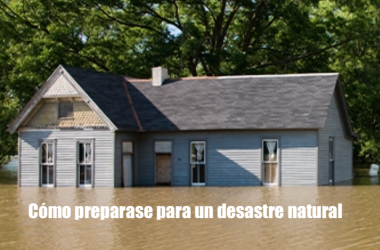By MICHELLE DEEHAN, JOE NELSON and LAKEN VITA
Mountaineer News Service
MORGANTOWN, W.Va. — Tyler DeAntonis is a college student with money issues other than textbook fees on his mind. He is part of a distinct statistic. According to The United States Government Accountability Office, 20 percent of college students in the United States between the ages of 18-23 do not have health insurance.
When West Virginia University junior, DeAntonis, received an injury while playing lacrosse that resulted in a trip to the hospital and 6 stitches on his finger, he found himself in the same predicament as 1.7 million other college students, paying out of pocket for his ER visit. DeAntonis was no longer covered under his father’s military health insurance after he turned 21.

Tyler DeAntonis often uses hazardous equipment like knives and deep fryers while working at Sandwich U on Walnut Street in Morgantown, W. Va. Because DeAntonis is without health insurance, getting hurt on the job could be costly for him.
“The school had me fill out a waiver form, saying that the school wasn’t liable for any injuries,” said DeAntonis, who is studying dentistry. “After I tried to speak with [the university] about it, and getting no response I had to pay the fee myself.”
Young adults often don’t think they will get ill, but accidents and medical conditions can come up at any time and drastically change their plans. Having medical insurance could be the difference between a student getting back into class and completing their degree or having to take substantial time off.
Beginning in the 2014-2015 academic year, all West Virginia University students will be required to have health care coverage. With the passing of the federal Affordable Care Act (ACA), the university is required to ensure that all students are covered. While the new requirement may be beneficial, it may cause financial problems for some students.
WellWVU is the WVU students’ health center. WellWVU Assistant Vice President, Catherine Yura said, “Students will be given the option to waive into the student insurance plan (Aetna) or out with their plan, by showing proof of insurance. If a student does not take action of waiving in or out of the plan, they will be charged for the student health plan (Aetna). The cost of the plan is approximately $700 per semester.”
Currently, medical insurance coverage is not mandatory for all students. For the 2013-2014 academic year, West Virginia University negotiated with Aetna Student Health to offer health insurance plans for its students. Aetna’s plan costs $1,542 each year, with deductibles from $150 for WVU based-care to $500 for preferred care.
The new Affordable Care Act offers qualified students, who are uninsured, options for discounted or free health insurance. Most low income students would qualify for marketplace health insurance, which would include ambulatory services, emergency services, hospitalization, maternity and newborn care, prescription drugs, laboratory fees and rehabilitation.
According to WellWVU, students using the services provided by student healthcare and WVU Urgent Care may have these services either billed to their health insurance provider or pay from their own resources when services are rendered. If students choose to have their health insurance providers billed, the only co-pay required for the office visit will be the amount their insurance carrier requires.
West Virginia University Political Science Professor, Matthew Jacobsmeier, said, “People who seem to be winners in a direct way with Obamacare are people of lower income. In most cases students will fall under that category.”
A majority of the 85 percent of WVU students with health insurance can be covered by their parents insurance until they’re 26, and many students who are not covered by their parents insurance may be able to have all of some portion of their premiums covered by subsidies put into effect by Obamacare.
Subsidies are ways that the government helps to pay for an individual’s medical insurance. They are based on residency requirements. These requirements include living in the U.S., being a U.S. citizen, and currently being unincarcerated. Your total household income has to be between 100 percent and 400 percent below the Federal Poverty Line (FPL) in order to qualify for subsidies and limit what you pay for health insurance. As your monthly income increases, so does your share of the cost for the monthly premium. Because most college students are making a low-income salary, the government would cover more of the cost.
In DeAntonis’ case mandatory health care might have been beneficial. DeAntonis will be undergoing oral surgery within the next year, and this has been a lingering issue for him.
“It’s going to cost me $1,400-$2,000 for my first dentist checkup,” DeAntonis said.
If DeAntonis were insured the surgery would have been covered.
“This next dental visit I have is going to be complicated. Since I’m not on insurance, I’m worried about the type of treatment I’ll get because the money isn’t guaranteed,” DeAntonis said. “I’ll have to set up a payment plan.”
The backlash against the Affordable Care Act is that according to the GAO most college students are covered by employer-sponsored plans through their parents, and some colleges and states are taking steps to increase coverage requirements. This means between 3-5 million people could lose their company-sponsored health care plans under Obamacare. Many businesses may find it more cost-effective to pay the penalty and let their employees purchase their own insurance plans on the exchanges.
According to Yura, mandatory insurance is already being enforced for international and professional students at WVU. She also ensures that the university can confirm that all students are under an insurance plan.
“Since all students have the capacity to have insurance, proof of insurance should not be an issue,” Yura said.
Jan E. Palmer, a doctor at WVU Student Health, said that currently students are required to pay $15 for their visit no matter their insurance plan but in the future students will only be required to show their insurance information before their visit.
WellWVU refers an average of 48 students a week to various medical clinics for procedures such as, ENTs, MRIs, CAT scans, OBGYN services and general surgery . Without insurance the resulting medical bills could create a financial burden that could alter a student’s entire college career. Despite health insurance’s mandate, students will not be able to include insurance expenses in their tuition fees however, the ACA gives students additional options here.
Enrollment for the ACA has already begun and will end March 31, 2014.




